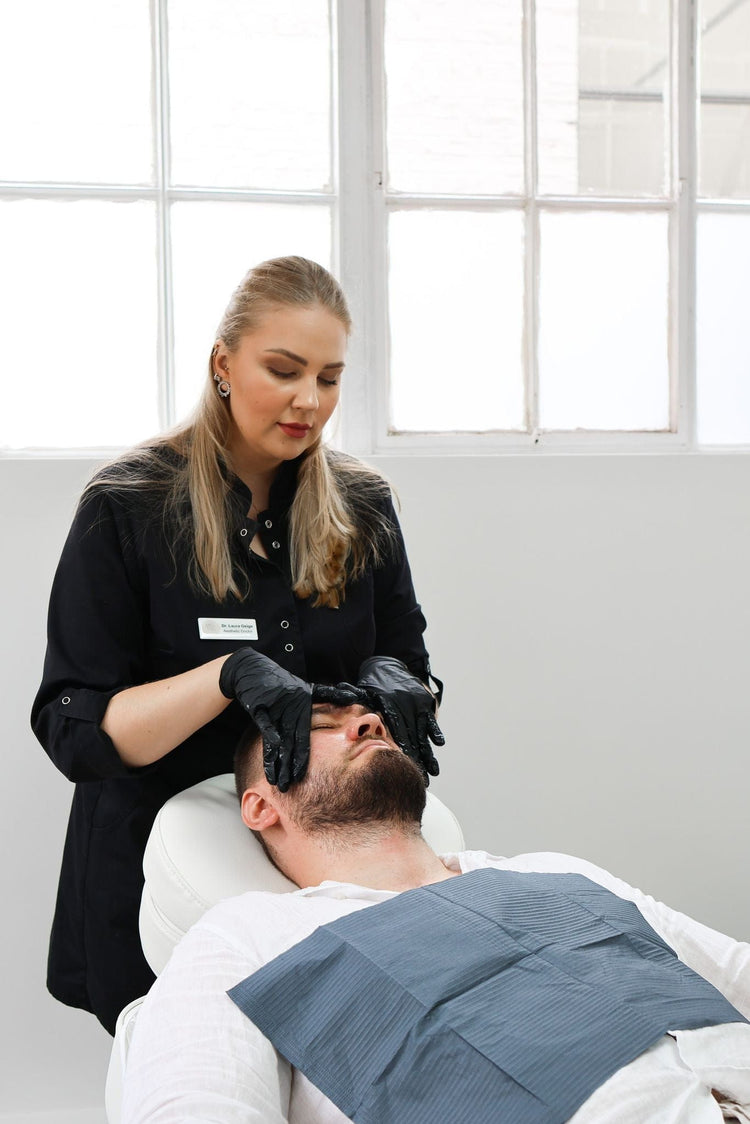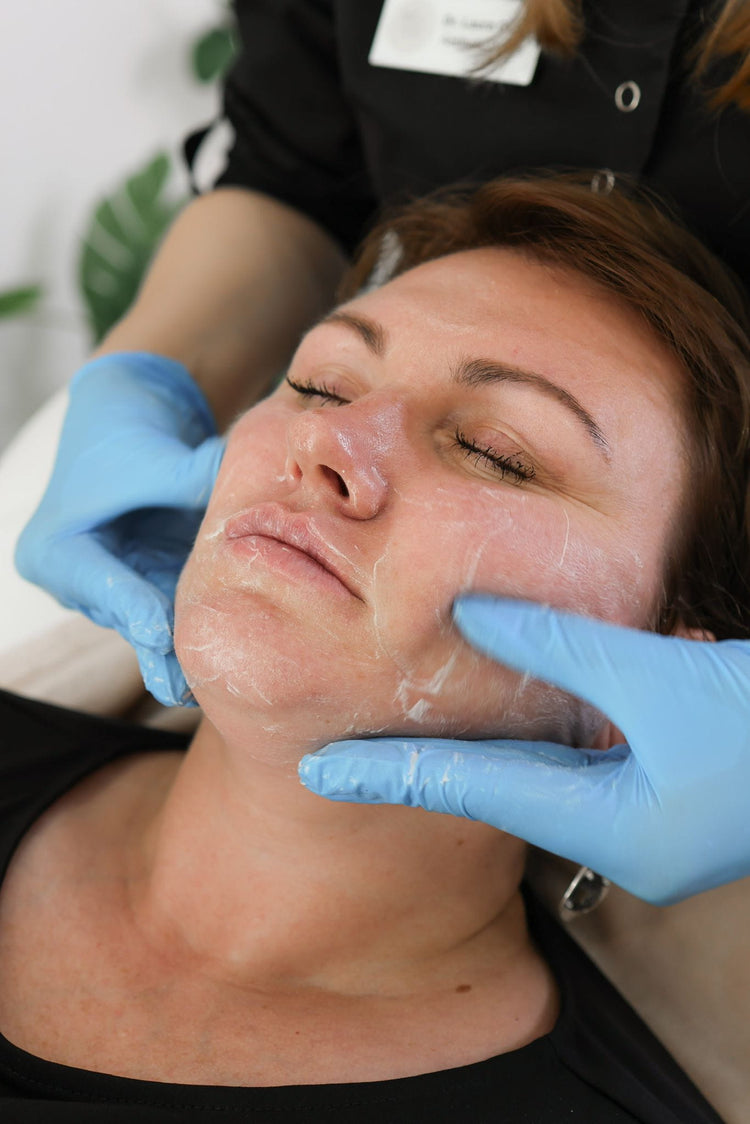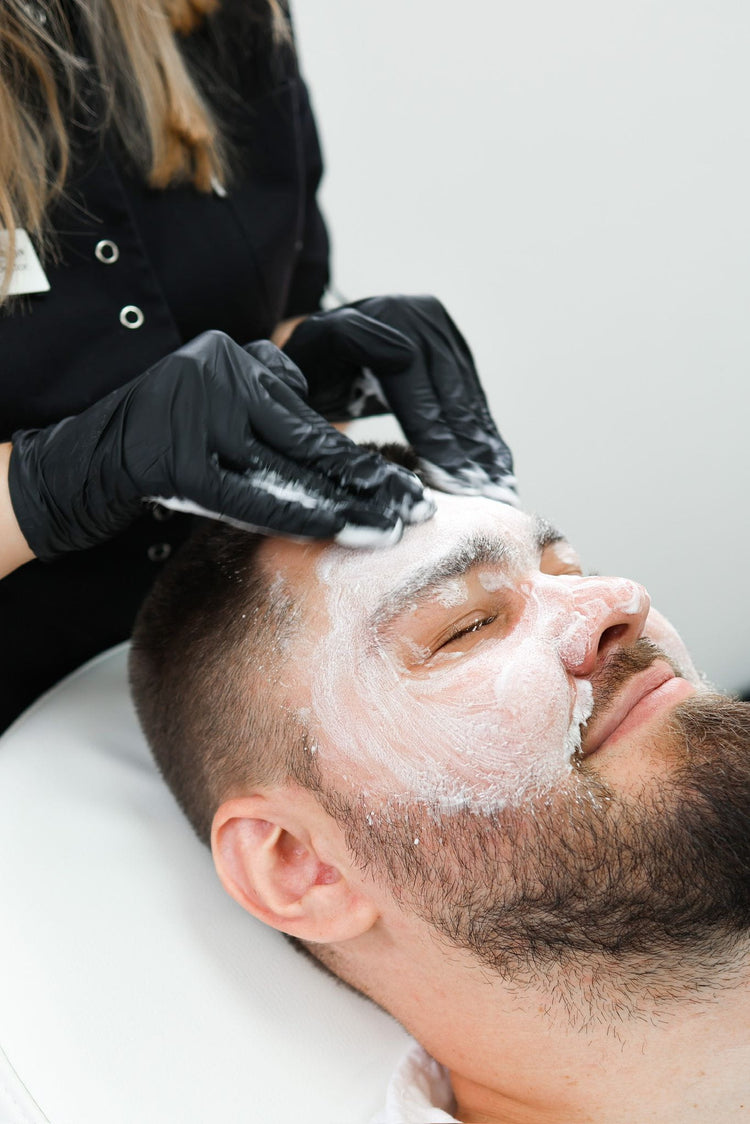Identifying Skin Concerns
Understanding your skin’s unique needs is crucial, especially as we age. Mature skin presents specific concerns that require tailored care. From wrinkles and dryness to pigmentation changes and loss of elasticity, recognizing these signs is the first step towards maintaining healthy, radiant skin.
Fine Lines and Wrinkles
Fine lines and wrinkles are often the most visible signs of aging skin. They appear as thin, delicate lines on the surface, becoming deeper and more pronounced with time. These lines are primarily caused by the gradual loss of collagen and elastin, proteins that provide skin with its structure and firmness.
Dryness is another common concern for mature skin. As we age, our skin’s ability to retain moisture decreases, leading to a lack of hydration. This can result in rough texture, flakiness, and an overall dull appearance.
Pigmentation changes, such as age spots or sunspots, are also prevalent in mature skin. These dark patches develop due to increased melanin production triggered by sun exposure or hormonal fluctuations.
Loss of elasticity, making the skin appear thinner and more fragile, is a natural part of aging. This can lead to sagging and wrinkles becoming more noticeable.
Loss of Elasticity
Fine lines and wrinkles are often the most visible signs of aging skin. They appear as thin, delicate lines on the surface, becoming deeper and more pronounced with time. These lines are primarily caused by the gradual loss of collagen and elastin, proteins that provide skin with its structure and firmness.
Dryness is another common concern for mature skin. As we age, our skin’s ability to retain moisture decreases, leading to a lack of hydration. This can result in rough texture, flakiness, and an overall dull appearance.
Pigmentation changes, such as age spots or sunspots, are also prevalent in mature skin. These dark patches develop due to increased melanin production triggered by sun exposure or hormonal fluctuations.

Loss of elasticity, making the skin appear thinner and more fragile, is a natural part of aging. This can lead to sagging and wrinkles becoming more noticeable.
Age Spots
Understanding your skin’s unique needs is crucial, especially as we age. Mature skin presents specific concerns that require tailored care. From wrinkles and dryness to pigmentation changes and loss of elasticity, recognizing these signs is the first step towards maintaining healthy, radiant skin.
- Fine lines and wrinkles are often the most visible signs of aging skin. They appear as thin, delicate lines on the surface, becoming deeper and more pronounced with time. These lines are primarily caused by the gradual loss of collagen and elastin, proteins that provide skin with its structure and firmness.
- Dryness is another common concern for mature skin. As we age, our skin’s ability to retain moisture decreases, leading to a lack of hydration. This can result in rough texture, flakiness, and an overall dull appearance.
- Pigmentation changes, such as age spots or sunspots, are also prevalent in mature skin. These dark patches develop due to increased melanin production triggered by sun exposure or hormonal fluctuations.
- Loss of elasticity, making the skin appear thinner and more fragile, is a natural part of aging. This can lead to sagging and wrinkles becoming more noticeable.
Dryness and Dehydration
Identifying your specific skin concerns is essential for choosing the right skincare products and treatments.
Dryness and dehydration are often confused, but they have distinct differences. Dryness occurs when the skin lacks sufficient oil production, resulting in a rough, flaky texture. Dehydration, on the other hand, happens when the skin doesn’t have enough water. This can manifest as dullness, tightness, and fine lines.
- Dryness is characterized by a lack of oil production, leading to flakiness and roughness.
- Dehydration occurs when the skin lacks sufficient water, resulting in dullness, tightness, and fine lines.
Personalized Treatment Plans
Personalized treatment plans are crucial for addressing the unique needs of mature skin. As we age, our skin undergoes various changes, including a decrease in collagen production, reduced moisture retention, and increased pigmentation. Tailoring skincare regimens to these specific concerns is essential for maintaining healthy, youthful-looking skin.
Assessment of Skin Type and Condition
Understanding your skin’s unique needs is crucial, especially as we age. Mature skin presents specific concerns that require tailored care. From wrinkles and dryness to pigmentation changes and loss of elasticity, recognizing these signs is the first step towards maintaining healthy, radiant skin.
- Fine lines and wrinkles are often the most visible signs of aging skin. They appear as thin, delicate lines on the surface, becoming deeper and more pronounced with time. These lines are primarily caused by the gradual loss of collagen and elastin, proteins that provide skin with its structure and firmness.
- Dryness is another common concern for mature skin. As we age, our skin’s ability to retain moisture decreases, leading to a lack of hydration. This can result in rough texture, flakiness, and an overall dull appearance.
- Pigmentation changes, such as age spots or sunspots, are also prevalent in mature skin. These dark patches develop due to increased melanin production triggered by sun exposure or hormonal fluctuations.
- Loss of elasticity, making the skin appear thinner and more fragile, is a natural part of aging. This can lead to sagging and wrinkles becoming more noticeable.
Personalized treatment plans are crucial for addressing the unique needs of mature skin. As we age, our skin undergoes various changes, including a decrease in collagen production, reduced moisture retention, and increased pigmentation. Tailoring skincare regimens to these specific concerns is essential for maintaining healthy, youthful-looking skin.
A skilled dermatologist or esthetician will conduct a thorough assessment of your skin type and condition during a consultation. This involves examining your skin’s texture, tone, and any existing concerns. They will also ask about your medical history, lifestyle habits, and skincare routine to gain a complete understanding of your individual needs.
Based on the assessment, a personalized treatment plan will be developed, which may include:
- A combination of topical products containing active ingredients like retinol, hyaluronic acid, antioxidants, and peptides.
- Professional treatments such as chemical peels, microdermabrasion, or laser therapy to address specific concerns like wrinkles, pigmentation, or loss of elasticity.
Customized Skincare Recommendations
Personalized treatment plans are crucial for addressing the unique needs of mature skin. As we age, our skin undergoes various changes, including a decrease in collagen production, reduced moisture retention, and increased pigmentation. Tailoring skincare regimens to these specific concerns is essential for maintaining healthy, youthful-looking skin.
A skilled dermatologist or esthetician will conduct a thorough assessment of your skin type and condition during a consultation. This involves examining your skin’s texture, tone, and any existing concerns. They will also ask about your medical history, lifestyle habits, and skincare routine to gain a complete understanding of your individual needs.
Based on the assessment, a personalized treatment plan will be developed, which may include:
- A combination of topical products containing active ingredients like retinol, hyaluronic acid, antioxidants, and peptides.
- Professional treatments such as chemical peels, microdermabrasion, or laser therapy to address specific concerns like wrinkles, pigmentation, or loss of elasticity.
Procedure Exploration
Understanding your skin’s unique needs is crucial, especially as we age. Mature skin presents specific concerns that require tailored care. From wrinkles and dryness to pigmentation changes and loss of elasticity, recognizing these signs is the first step towards maintaining healthy, radiant skin.
Personalized treatment plans are essential for addressing these concerns effectively. A skilled dermatologist or esthetician will conduct a thorough assessment to understand your individual skin type and condition.
During this consultation, they will examine your skin’s texture, tone, and any existing concerns. They will also ask about your medical history, lifestyle habits, and skincare routine to gain a complete understanding of your unique needs.
Based on the assessment, a personalized treatment plan will be developed, which may include:
- A combination of topical products containing active ingredients like retinol, hyaluronic acid, antioxidants, and peptides.
- Professional treatments such as chemical peels, microdermabrasion, or laser therapy to address specific concerns like wrinkles, pigmentation, or loss of elasticity.
Embracing a personalized approach ensures that your skincare regimen is optimized for your mature skin’s specific requirements, promoting a healthy and youthful glow.
Addressing Underlying Causes
Understanding the underlying causes of skin concerns is crucial, particularly as we age. Mature skin presents unique challenges, often requiring targeted solutions to address specific issues.
Hormonal Changes

Hormonal changes play a significant role in skin health throughout life. As women transition through menopause, fluctuating hormone levels can contribute to various skin issues. Decreased estrogen production can lead to thinner skin, dryness, and increased sensitivity.
Addressing these hormonal influences is essential for maintaining healthy mature skin. Lifestyle modifications, such as a balanced diet and regular exercise, can support hormonal balance. Incorporating ingredients like phytoestrogens found in certain plant-based foods may also help mitigate some of the effects of declining estrogen levels.
Sun Damage

Understanding the underlying causes of sun damage is crucial for developing effective treatment strategies. Sun exposure is a primary driver of premature aging, leading to wrinkles, pigmentation changes, and skin cancer risk.
Ultraviolet (UV) radiation from the sun damages the skin’s collagen and elastin fibers, responsible for its structure and firmness. This damage manifests as wrinkles, sagging, and loss of elasticity.
Excessive sun exposure also triggers an overproduction of melanin, leading to hyperpigmentation or dark spots. These spots are often unevenly distributed and can make skin appear dull and aged.
Lifestyle Factors
Addressing underlying causes, like hormonal fluctuations and sun damage, is key for effective mature skin care. Hormonal changes, particularly during menopause, can lead to thinner skin, dryness, and increased sensitivity due to declining estrogen levels. Incorporating lifestyle modifications such as a balanced diet, regular exercise, and potentially phytoestrogen-rich foods can help mitigate these effects.
Sun exposure is another major factor in premature aging, causing wrinkles, pigmentation issues, and increasing skin cancer risk. UV radiation damages collagen and elastin fibers, leading to loss of firmness and elasticity. Excessive sun exposure also triggers melanin overproduction, resulting in dark spots and an uneven complexion. Protecting your skin from the sun through daily sunscreen use, protective clothing, and limiting sun exposure during peak hours is crucial for preventing further damage and maintaining a youthful appearance.
Maximizing Results
Maximizing results when it comes to skincare requires understanding your skin’s unique needs, especially as we age. Mature skin presents specific concerns that demand tailored care. Recognizing these signs early on is the first step towards maintaining healthy, radiant skin.
Professional Product Selection
Understanding your skin’s unique needs is crucial, especially as we age. Mature skin presents specific concerns that require tailored care. From wrinkles and dryness to pigmentation changes and loss of elasticity, recognizing these signs is the first step towards maintaining healthy, radiant skin.
- Fine lines and wrinkles are often the most visible signs of aging skin. They appear as thin, delicate lines on the surface, becoming deeper and more pronounced with time. These lines are primarily caused by the gradual loss of collagen and elastin, proteins that provide skin with its structure and firmness.
- Dryness is another common concern for mature skin. As we age, our skin’s ability to retain moisture decreases, leading to a lack of hydration. This can result in rough texture, flakiness, and an overall dull appearance.
- Pigmentation changes, such as age spots or sunspots, are also prevalent in mature skin. These dark patches develop due to increased melanin production triggered by sun exposure or hormonal fluctuations.
- Loss of elasticity, making the skin appear thinner and more fragile, is a natural part of aging. This can lead to sagging and wrinkles becoming more noticeable.
Personalized treatment plans are crucial for addressing these concerns effectively. A skilled dermatologist or esthetician will conduct a thorough assessment to understand your individual skin type and condition.
During this consultation, they will examine your skin’s texture, tone, and any existing concerns. They will also ask about your medical history, lifestyle habits, and skincare routine to gain a complete understanding of your unique needs.
Based on the assessment, a personalized treatment plan will be developed, which may include:
- A combination of topical products containing active ingredients like retinol, hyaluronic acid, antioxidants, and peptides.
- Professional treatments such as chemical peels, microdermabrasion, or laser therapy to address specific concerns like wrinkles, pigmentation, or loss of elasticity.
Embracing a personalized approach ensures that your skincare regimen is optimized for your mature skin’s specific requirements, promoting a healthy and youthful glow.
Understanding the underlying causes of sun damage is crucial for developing effective treatment strategies. Sun exposure is a primary driver of premature aging, leading to wrinkles, pigmentation changes, and skin cancer risk.
Ultraviolet (UV) radiation from the sun damages the skin’s collagen and elastin fibers, responsible for its structure and firmness. This damage manifests as wrinkles, sagging, and loss of elasticity.
Excessive sun exposure also triggers an overproduction of melanin, leading to hyperpigmentation or dark spots. These spots are often unevenly distributed and can make skin appear dull and aged.
Addressing underlying causes, like hormonal fluctuations and sun damage, is key for effective mature skin care. Hormonal changes, particularly during menopause, can lead to thinner skin, dryness, and increased sensitivity due to declining estrogen levels. Incorporating lifestyle modifications such as a balanced diet, regular exercise, and potentially phytoestrogen-rich foods can help mitigate these effects.
Sun exposure is another major factor in premature aging, causing wrinkles, pigmentation issues, and increasing skin cancer risk. UV radiation damages collagen and elastin fibers, leading to loss of firmness and elasticity. Excessive sun exposure also triggers melanin overproduction, resulting in dark spots and an uneven complexion.
Maximizing results when it comes to skincare requires understanding your skin’s unique needs, especially as we age. Mature skin presents specific concerns that demand tailored care. Recognizing these signs early on is the first step towards maintaining healthy, radiant skin.
Treatment Frequency and Timing
Understanding your skin’s unique needs is crucial, especially as we age. Mature skin presents specific concerns that require tailored care. From wrinkles and dryness to pigmentation changes and loss of elasticity, recognizing these signs is the first step towards maintaining healthy, radiant skin.
- Fine lines and wrinkles are often the most visible signs of aging skin. They appear as thin, delicate lines on the surface, becoming deeper and more pronounced with time. These lines are primarily caused by the gradual loss of collagen and elastin, proteins that provide skin with its structure and firmness.
- Dryness is another common concern for mature skin. As we age, our skin’s ability to retain moisture decreases, leading to a lack of hydration. This can result in rough texture, flakiness, and an overall dull appearance.
- Pigmentation changes, such as age spots or sunspots, are also prevalent in mature skin. These dark patches develop due to increased melanin production triggered by sun exposure or hormonal fluctuations.
- Loss of elasticity, making the skin appear thinner and more fragile, is a natural part of aging. This can lead to sagging and wrinkles becoming more noticeable.
Personalized treatment plans are crucial for addressing these concerns effectively. A skilled dermatologist or esthetician will conduct a thorough assessment to understand your individual skin type and condition.
During this consultation, they will examine your skin’s texture, tone, and any existing concerns. They will also ask about your medical history, lifestyle habits, and skincare routine to gain a complete understanding of your unique needs.
Based on the assessment, a personalized treatment plan will be developed, which may include:
- A combination of topical products containing active ingredients like retinol, hyaluronic acid, antioxidants, and peptides.
- Professional treatments such as chemical peels, microdermabrasion, or laser therapy to address specific concerns like wrinkles, pigmentation, or loss of elasticity.
Embracing a personalized approach ensures that your skincare regimen is optimized for your mature skin’s specific requirements, promoting a healthy and youthful glow.
Understanding the underlying causes of sun damage is crucial for developing effective treatment strategies. Sun exposure is a primary driver of premature aging, leading to wrinkles, pigmentation changes, and skin cancer risk.
Ultraviolet (UV) radiation from the sun damages the skin’s collagen and elastin fibers, responsible for its structure and firmness. This damage manifests as wrinkles, sagging, and loss of elasticity.
Excessive sun exposure also triggers an overproduction of melanin, leading to hyperpigmentation or dark spots. These spots are often unevenly distributed and can make skin appear dull and aged.
Addressing underlying causes, like hormonal fluctuations and sun damage, is key for effective mature skin care. Hormonal changes, particularly during menopause, can lead to thinner skin, dryness, and increased sensitivity due to declining estrogen levels. Incorporating lifestyle modifications such as a balanced diet, regular exercise, and potentially phytoestrogen-rich foods can help mitigate these effects.
Sun exposure is another major factor in premature aging, causing wrinkles, pigmentation issues, and increasing skin cancer risk. UV radiation damages collagen and elastin fibers, leading to loss of firmness and elasticity. Excessive sun exposure also triggers melanin overproduction, resulting in dark spots and an uneven complexion.
Maximizing results when it comes to skincare requires understanding your skin’s unique needs, especially as we age. Mature skin presents specific concerns that demand tailored care. Recognizing these signs early on is the first step towards maintaining healthy, radiant skin.
Home Care Regimen
This article provides a great overview of skin concerns in mature skin and the benefits of personalized treatment plans.
Here are some suggestions to further enhance the content:
* **Expand on specific ingredients:** Briefly discuss how retinol, hyaluronic acid, antioxidants (like vitamin C), and peptides work to address different concerns (e.g., wrinkles, dryness, pigmentation).
* **Provide examples of professional treatments:** Go into a bit more detail about chemical peels, microdermabrasion, and laser therapy, explaining their benefits for mature skin.
* **Address other considerations:**
* **Skincare routine:** Mention the importance of cleansing, exfoliating (gently!), moisturizing, and sun protection as part of a daily regimen.
* **Diet and lifestyle:** Emphasize the role of a healthy diet rich in antioxidants and adequate hydration in supporting skin health.
* **Sleep:** Mention that getting enough sleep is crucial for skin cell regeneration.
By incorporating these suggestions, you can create an even more comprehensive and informative article on maximizing results for mature skin care.
Enquire about skin treatments for pigmentation at It’s Me & You Clinic with Dr. Laura Geige
- Xela Rederm Skin Booster Treatments Near Surbiton, Surrey - February 3, 2026
- Xela Rederm Skin Booster Treatments Near Epsom, Surrey - February 2, 2026
- Why Vista Edge Vape Stands Out Among Premium Vape Brands - January 31, 2026
